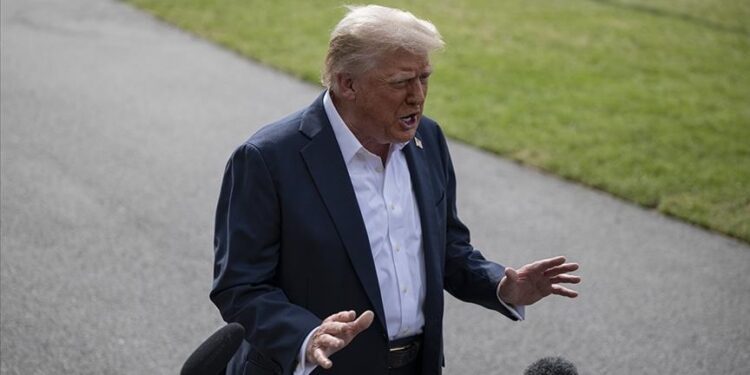President Donald Trump has advised all U.S. visa applicants, including expatriates who are overweight, to “trim down” before submitting their applications or risk being denied entry.
On Tuesday, Mr Trump revealed that a restriction was in the works for people who were grossly overweight and suffered health problems to be banned from entering the U.S.
The American leader said his administration would not approve visas for people who could “overburden” the U.S. health system because of their weight-related diseases.
“We will not ban all fat people from entering our Great Country, only those whose poor health will overburden our health care system,” Mr Trump wrote on Truth Social.
The restriction, Mr Trump said, exempts visa applicants who are “slightly overweight” while stating that “the bigger ones will need to trim down to get approved”.
Mr Trump further disclosed plans to extend the visa restriction to expatriates, suggesting that no “grossly overweight” persons will be welcome in the U.S., regardless of their status.
“We will EXPAND this rule to cover Expats in the near future. Rosie, you will never return to This Great Country,” stated Mr Trump.
This is coming on the heels of Mr Trump’s announcement of his “fat shot” deal with two pharmaceutical companies to lower the cost of popular weight-loss drugs Ozempic and Zepbound.
The New Republic, a U.S.-based media outlet, reported that a directive from the State Department, sent to embassies and consulates around the world, indicated that people applying for visas to the U.S. may be rejected for being fat.
“You must consider an applicant’s health. Certain medical conditions—including, but not limited to, cardiovascular diseases, respiratory diseases, cancers, diabetes, metabolic diseases, neurological diseases, and mental health conditions—can require hundreds of thousands of dollars’ worth of care,” said the cable.
It added, “All of these can require expensive, long-term care. “Does the applicant have adequate financial resources to cover the costs of such care over his entire expected lifespan without seeking public cash assistance or long-term institutionalization at government expense?”






